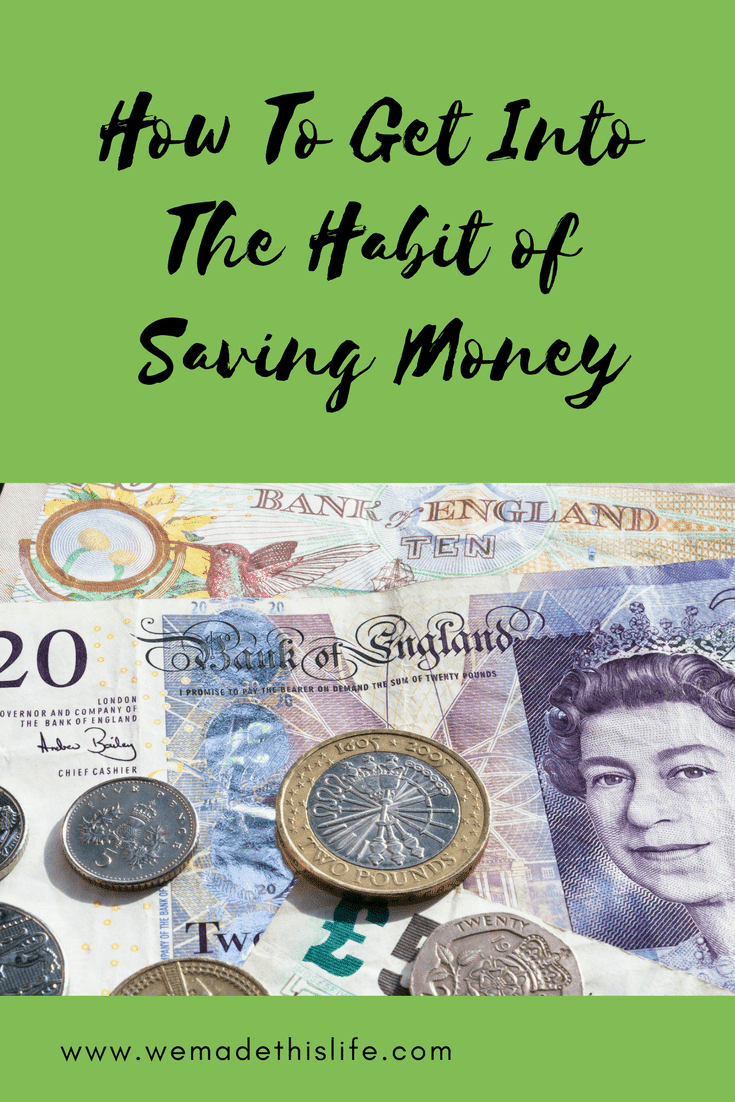Our spending habits can go a little over board sometimes and many can be left in financial difficulty or just missing a little bit of extra money every month. So, whether you are wanting to buy a new car, go on holiday, want to save for a rainy day or just need to cut down on your spending we have compiled together some of the best ways for you to get into the habit of saving money.
Set your budget
One of the best places to start when trying to get yourself into the habit of saving is to set yourself a budget. Work out what you can afford to save each month, set against a list of your monthly expenses. Remember to include your regular outgoings such as mortgage/rent, gas and electricity, petrol and broadband. Add in the times you’re going out with friends for meals or drinks too; a brutal and unrealistic saving regime with no room for enjoyment is less likely to be successful.
Pay yourself first
One of the easiest and simplest ways of getting into the habit of saving is to pay yourself first. Not sure what that means? Well, essentially it means that whenever you come into some money, either from a pay check, a lottery win or from selling something you no longer use – put some of it straight into savings before doing anything else.
If you want to take a chunk of your wages out every month and put that into a savings account, set up a direct debit. This way the money is automatically transferred from wages straight to your other account, and you don’t even see the money coming out. Ideally set aside 10 to 20 percent of income.
Save your spare change
This is a very simple way to yourself into the saving habit. Put all your spare change into a piggy bank or jar. It doesn’t take long for the money to add up and you will visibly see your savings grow and grow making you more motivated to save that bit more money.
Cut down expenses
Start by reducing the amount you pay for non-essential things and begin with simple changes such as a packed lunch for work and making yourself a coffee at home instead of buying one. A £3 coffee every day would set you back almost £1,100, compared to about £50 for several jars for the year.
You can also save money on essentials such as rent, electricity, broadband, phone bills and weekly shops. Shop around and see what you can get cheaper; with many businesses you will often find there are new deals available all the time that will help reduce some of your costs. or at least get you more additions for the same amount of money.
For food shopping you don’t have to buy all the big named items; try own-brand versions because nine times out of ten they are just as nice and will be cheaper. Bulk cooking meals is another way of saving both money and time, as suggested in Lifehack’s 30 ways to cut down on your monthly expenses.
There are multiple guides available that can help you if you are currently struggling to plan how to deal with debt, loans or an abundance of credit cards. Once you have properly weaned yourself into the habit of saving, don’t forget to reward yourself. Treating yourself to dinner out, or a small gift to yourself will remind you of your accomplishments and make everything seem worth while. Learning to save is hard, but when you start little and gain more confidence you will develop skills that will make saving almost automatic.
Did you find this post useful? Share it with your friends or Pin it for later...



















Leave a Reply